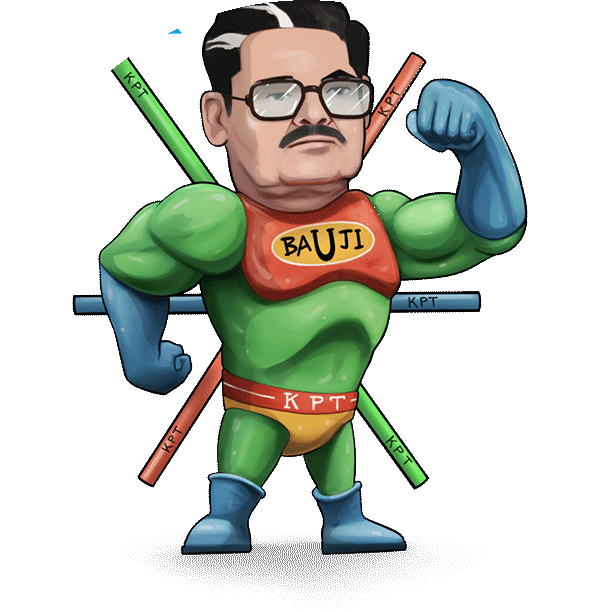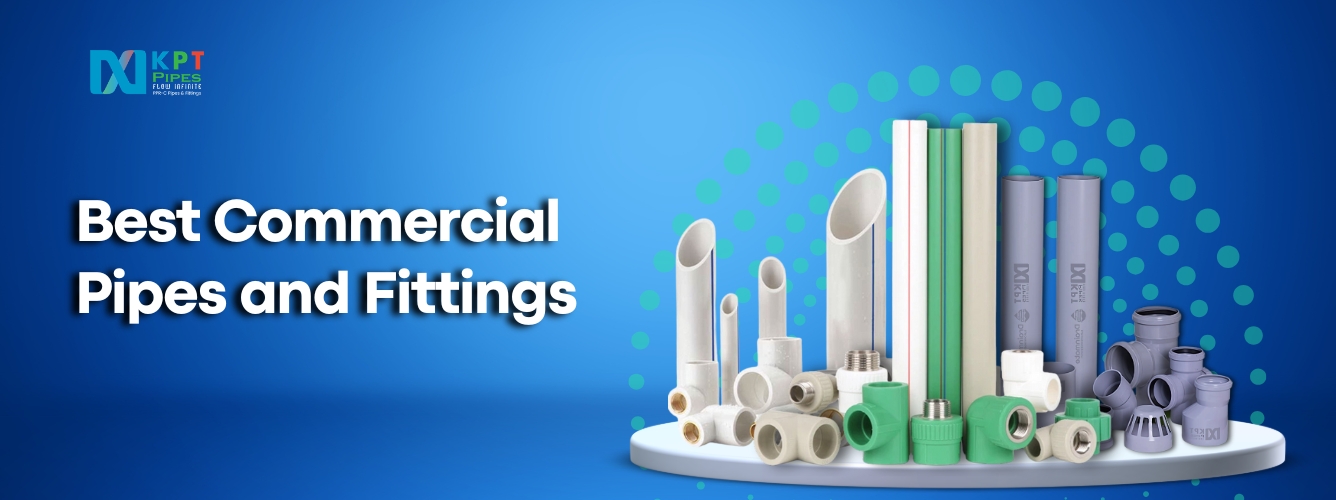In today’s fast-evolving construction and industrial landscape, commercial pipes and fittings play a crucial role in ensuring performance, safety, and longevity. Whether for manufacturing units, residential complexes, office buildings, or heavy industries, the right piping system determines efficiency and sustainability.
Pipes and fittings are no longer just conduits for water or gas—they are integral systems engineered to stand up to pressure, temperature variations, and chemical exposure. Their quality directly influences maintenance costs, operational reliability, and overall project value.
Table of Contents
ToggleUnderstanding Commercial Pipes and Fittings
Commercial pipes and fittings are specifically designed for large-scale applications that demand durability, pressure resistance, and easy installation. Unlike domestic plumbing, which deals with moderate loads, commercial installations must handle high volumes of fluid or gas movement.
Modern manufacturers are now offering advanced products made from materials like PPR (Polypropylene Random Copolymer), UPVC (Unplasticized Polyvinyl Chloride), and CPVC (Chlorinated Polyvinyl Chloride) — each suited for specific conditions.
- PPR Pipes and Fittings – Known for high heat resistance and chemical stability, ideal for hot and cold water applications.
- UPVC Pipes and Fittings – Lightweight, cost-effective, and corrosion-resistant, perfect for drainage and plumbing.
- CPVC Pipes and Fittings – Designed for high-temperature resistance and commonly used in both commercial and industrial piping systems.
Why Quality Matters
Selecting high-quality commercial pipes and fittings can significantly influence project lifecycle and safety standards. Inferior materials can lead to leaks, corrosion, contamination, and costly repairs. Superior pipes, on the other hand, ensure smooth flow, low maintenance, and regulatory compliance.
Key factors to evaluate before purchase:
- Material Integrity: Ensure compatibility with the medium (water, chemicals, or gas).
- Pressure Ratings: Pipes should meet specifications for operating pressure.
- Temperature Resistance: Vital for HVAC, industrial, and chemical applications.
- Ease of Installation: Systems that reduce welding or jointing time save both effort and cost.
- Environmental Friendliness: Recyclable materials promote sustainable construction practices.
Advantages of Commercial Pipes and Fittings
Investing in the right piping system delivers numerous benefits:
- Corrosion Resistance: Non-metallic materials like PPR and UPVC don’t rust or degrade in harsh environments.
- Hygienic Flow: Smooth interior surfaces prevent scale buildup and bacterial growth.
- Thermal Stability: Excellent for both cold and hot water distribution.
- Leak-Proof Joints: Precision-moulded fittings minimise maintenance.
- Longevity: High resistance to wear and tear enhances durability and cost efficiency.
Various Applications
Pharmaceutical Piping: In the pharmaceutical industry, hygiene and purity are of utmost importance. Pharmaceutical piping systems are carefully designed to prevent contamination and ensure sterile transfer of liquids and gases. Pipes and fittings used in such environments must meet stringent quality standards, including chemical resistance, smooth finishes, and leak-proof connections.
Materials like PP, PVDF, and Stainless Steel are commonly used because they can withstand both aggressive cleaning agents and high temperatures. These systems support the manufacturing of injectable drugs, syrups, and other formulations that require contamination-free flow.
Industrial Piping Solutions: Industrial processes demand systems that can handle high pressure, variable temperatures, and chemical exposure. Industrial piping solutions are vital for sectors like oil and gas, food processing, and power generation. The focus here is durability, performance, and safety.
Advanced thermoplastic pipes such as CPVC or HDPE are increasingly replacing traditional metal systems due to their superior resistance to corrosion, chemical damage, and easy installation.
Commercial and Institutional Buildings: From malls and hospitals to schools and hotels, commercial properties depend on reliable plumbing infrastructure. The right commercial pipes and fittings ensure efficient water supply, drainage, and fire safety systems. These installations also contribute to energy conservation and long-term maintenance savings.
Sustainability and Future Trends
Modern piping systems are evolving with sustainability in mind. Energy-efficient manufacturing processes, recyclable materials, and long service lives are now key considerations. The use of green-certified pipes helps reduce the environmental footprint of construction projects.
Moreover, advanced technologies like fusion jointing and smart leak detection are improving system efficiency and reliability. Upcoming innovations continue to make pipes lighter, stronger, and more adaptable to specialised industry needs.
Choosing the Right Supplier
The quality and reliability of your commercial pipes and fittings depend heavily on the supplier you choose. A trusted manufacturer not only delivers high-quality products but also offers technical support, product customisation, and on-time delivery.
When selecting a supplier, consider:
- Proven manufacturing credentials and certifications
- Use of high-grade raw materials
- Range of products to meet diverse application needs
- Availability of after-sales support and consultation
Brands that combine robust R&D with stringent quality control processes ensure consistent performance and longevity for every piping system they deliver.
Maintenance and Longevity
Proper maintenance is critical for ensuring long-lasting performance. Even the best-installed systems can decline over time due to neglect. Routine inspection helps detect pressure drops, minor leaks, or scaling early.
Adopt these best practices:
- Regularly inspect joints and fittings
- Monitor pressure and flow rates
- Schedule cleaning cycles for buildup prevention
- Replace damaged sections promptly with compatible fittings
A proactive maintenance strategy helps extend service life, reduce downtime, and maintain compliance with health and safety standards.
Conclusion
The selection and installation of commercial pipes and fittings are foundational to every successful infrastructure project. Whether in pharmaceutical labs, food manufacturing units, or large commercial complexes, these systems uphold efficiency, hygiene, and performance.
With advancements in material technology, piping systems today offer unmatched reliability, corrosion resistance, and environmental compatibility. Partnering with a reputed manufacturer offering end-to-end industrial piping solutions ensures not only superior products but also long-term value for your investment.
FAQs About Commercial Pipes and Fittings
Q1. What are commercial pipes and fittings used for?
Ans: They are used in large-scale plumbing and infrastructure projects—covering water supply, drainage, HVAC systems, and industrial processes where durable, high-pressure-resistant materials are essential.
Q2. How are commercial pipes different from residential ones?
Ans: Commercial systems handle higher pressures, volumes, and temperatures. They are built for endurance and large-scale operations, unlike residential setups designed for moderate daily use.
Q3. What types of materials are best for commercial piping?
Ans: Materials like PPR, CPVC, and UPVC are widely preferred for their corrosion resistance, chemical stability, and temperature endurance. Each has specific benefits depending on the application.
Q4. Why is pharmaceutical piping important?
Ans: Pharmaceutical piping ensures the sterile transfer of fluids without contamination. Such systems are built under strict sanitation and chemical compatibility standards for secure production environments.
Q5. How can I maintain commercial piping systems effectively?
Ans: Routine inspection, timely repair, and cleaning are key. Using approved fittings and adhering to recommended maintenance schedules helps extend service life and reduce operational disruption.



